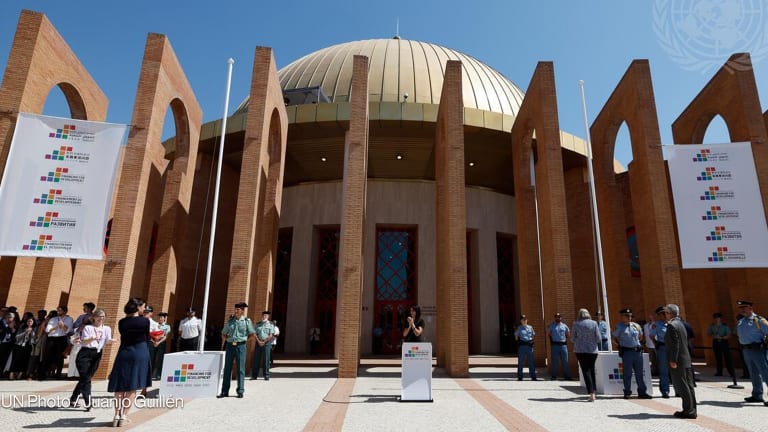
Over the next year or so, expect a million reports called ‘Financing the post-2015 goals’ or a variant. Many will analyse what is known as ‘development finance’ which can be variously defined but basically means cross-border flows of money which have the promotion of development as a specific objective.
The most obvious source of ‘development finance’ is aid, but looking more broadly the issuance of Special Drawing Rights (SDRs) by the International Monetary Fund, the various proposed global taxes on things like carbon and financial transactions, as well as debt cancellation deals, would also be examples of ‘development finance.’
But the vast majority of development activities are not financed by a person or institution sending money around the world in the name of ‘development.’ Instead, they are paid for by domestic resources raised through taxes, by private investment (whether national or international) motivated by profit incentives, and by increased household expenditure supported by a process of economic growth and fairer distribution of wealth.
Even the world’s poorest countries are doing their level best to grow their own resources and manage them better, thus reducing their reliance on what we now think of as development finance.
So, while efforts should of course be made to raise development finance to help pay the costs of post-2015 progress, it could be that investing time and political will in global policy reforms to enable countries and people to finance and promote their own development will be significantly more important.
In an attempt to look beyond development finance, ODI has carried out a preliminary scoping (to be presented this week at a conference in New York) of a number of key policy reforms that could help generate a pro-development global economic environment.
Looking at some of the most recent and reputable literature we assessed some of the most important estimates of benefits related to specific policy changes. They are no more than ball-park figures and not always comparable, but they do give an idea of the scale of change possible.
The highest estimates for development finance contributions are in the low hundreds of billions, for official development assistance (ODA), a global carbon tax, and the issuance of SDRs. How do the estimated benefits from some of the policy reforms we looked at compare?
First, we looked at trade and investment. One report estimates that the welfare gains for developing countries from the tariff reductions suggested in the Doha round will be $70 billion per year. However, the benefits would not be evenly distributed, and some of the world’s poorest countries would actually see their incomes hit, especially in Africa.
It is progress in other areas which might benefit Africa. Policies to improve customs procedures could lead to gains of hundreds of billions globally and about $6 billion in sub-Saharan Africa, while improvements in port efficiency could lead to even greater financial gains.
Second, we looked at cross-border migration. Perhaps surprisingly, some of the largest economic gains for developing countries and their citizens are related not to trade or financial architecture but to the freer movement of people. Remittances to developing countries currently stand at over $500 billion and could increase by almost $200 billion if migration increases by eight percent from its current baseline.
But welfare gains are not limited to remittances. The increases in welfare for the migrants themselves would be significant, as would gains to developed, destination countries. According to Michael Clemens, ‘a modest increase in emigration out of low-income countries — just five percent of the people now living there — would expand the world economy by several trillion dollars every year,’ with many of the welfare gains accruing to developing countries and the migrants themselves.
Finally we come to changes in the international financial architecture, some of which have gained great prominence in recent years. Capital outflows from crime, corruption, tax evasion and trade mispricing reached almost $860 billion in 2010, according to one report on the subject, with trade mispricing the largest component at $550 billion. Of the hundreds of billions of dollars lost in corruption in the last decades, only $5 billion has been recovered. Taxes lost through failure to cooperate sensibly across borders could be over $200 billion per year.
Not all opportunities are related to policy changes at the global level, of course. As savings in developing countries continue to increase, one analysis estimates that the allocation of just 10 percent of Sovereign Wealth Fund monies to developing countries would result in investments totalling $1.4 trillion.
While useful, the failings of this ball-park approach are fairly obvious. As well as an analysis of the size of the benefits possible, we need to analyse the characteristics of such benefits e.g. distribution and sustainability (including environmental). Moreover, in order to prioritise campaigning and advocacy activities, an assessment needs to be made of the political viability of particular reforms.
Those issues that score highly on all three factors (quantity, developmental characteristics and political viability) should logically be prioritised by the development community to complement, not replace, a focus on development finance proper.
Edited for style and republished with permission from the Overseas Development Institute. Read the original article.




